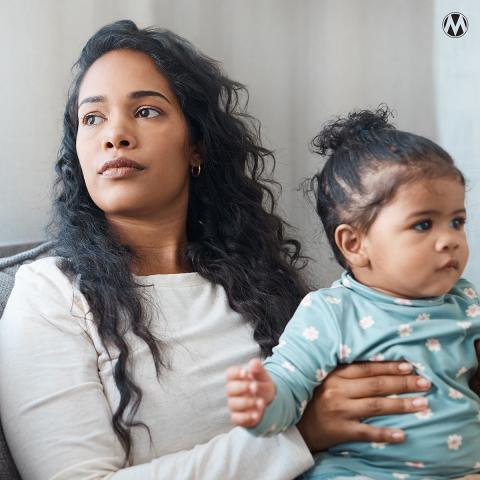
My son was barely three months old, and I was in the midst of feeling depressed, when I thought I was once again pregnant. My feelings of depression were now mixed with near panic at the thought of possibly being pregnant again. Although I had never had an abortion in my life I knew that if I was indeed pregnant I would most definitely have one. I reflect on this today, World Maternal Mental Health Day, as I think back to my mental health struggles in those early days after giving birth.
World Mental Health Day was established “to raise awareness of maternal mental health issues so that more women will get treatment and fewer will suffer”. But as of late, with the numerous attacks on our reproductive freedoms in the United States, it seems that the suffering of women is only destined to increase. On multiple fronts, women are fighting efforts that give authority over our bodies, particularly our reproductive health, to politicians and judges. This current state of affairs is only worsening the mental health of women, mothers, and birthing people.
If you’re wondering how maternal mental health and access to reproductive health services, including abortion, are interconnected I will make it plain and simple—most people who get an abortion (6 out of 10, in fact) have already given birth. This doesn’t surprise me, given my own life experience. As it turned out, I was not pregnant, but had I been, the decision to have an abortion would have been a very easy one. For many people, the decision to have an abortion is difficult and complicated—either way, the choice to continue a pregnancy should rest in the hands of those who give birth. Only birthing people know how many children they can and want to have.
Nevertheless, since the fall of Roe v. Wade, the majority of states have implemented increasingly restrictive bans on abortion making it extremely difficult to impossible to get an abortion, even when the life of the mother is at risk. And recent data has shown an increase in depression and anxiety symptoms in states where abortion bans are in place. It is particularly troubling that while the United States is the most dangerous high-income country for childbirth, particularly for Black women, it is essentially obligating women to continue pregnancies by banning abortions. Moms in the south, the region with the most restrictive abortion laws, are amongst those most at risk of dying in childbirth, with Black and Indigenous women bearing the greatest brunt of the crisis.
So while we must continue to advocate for greater maternal mental health resources, and tell our stories about mental health struggles related to pregnancy and birth, as well as push for a comprehensive approach to the maternal mortality crisis, it is clear that we must also fight to restore and expand reproductive freedoms for women, moms, and birthing people. We don’t live single-issue lives, our health care and bodily autonomy, or the lack thereof, undoubtedly continue to impact our mental health.



The views and opinions expressed in this post are those of the author(s) and do not necessarily reflect those of MomsRising.org.
MomsRising.org strongly encourages our readers to post comments in response to blog posts. We value diversity of opinions and perspectives. Our goals for this space are to be educational, thought-provoking, and respectful. So we actively moderate comments and we reserve the right to edit or remove comments that undermine these goals. Thanks!